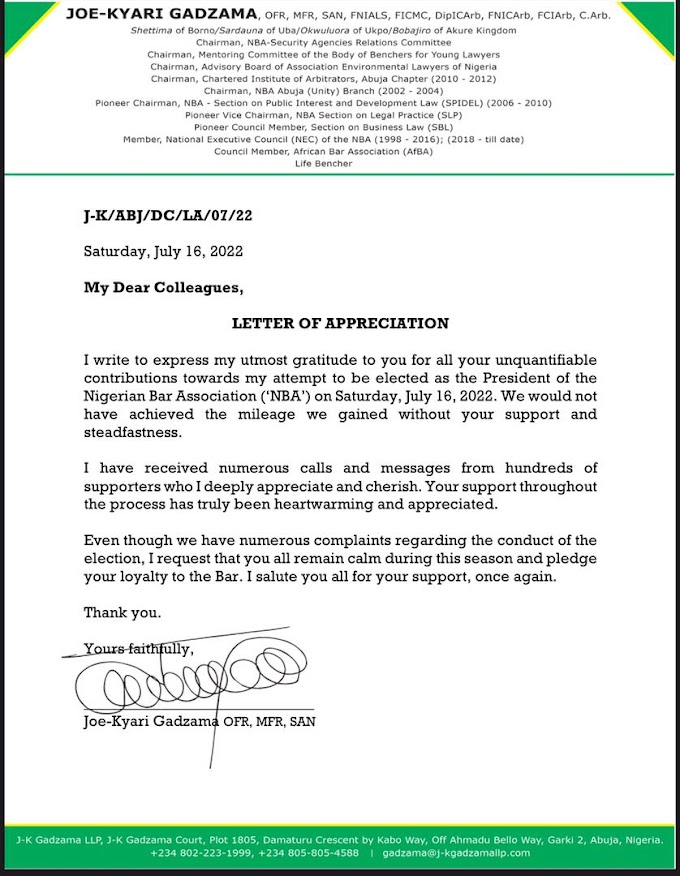The EFCC has an inherent duty to scrutinize all complaints that it receives carefully, no matter how carefully crafted by the complaining party, and be bold enough to counsel such complainants to seek appropriate/lawful means to resolve their disputes. Alas! The EFCC is not a debt recovery agency and should refrain from being used as such.
DIAMOND BANK PLC V. OPARA (2018) 7 NWLR (PT 1617) PG. 92 AT 114, PARAS. D.
It is most unfortunate that our citizens now use the army and Police personnel to collect debts from fellow business associates whether the debt is real or imaginary. Any document signed in the presence of the Police and relating to a civil claim shall be viewed with suspect particularly if the persons against whom it will affect was in custody or under some detention or handicap that he cannot freely enter into a contract with enforcement officers breathing down his neck. Any document that seeks to establish the existence of a contractual relationship which takes place under the very watchful eyes of the Police to whom a purely civil matter is brought to its attention to enforce or put a fear of God into the other side will certainly not be enforced as there is no consensus and is voidable." Per PATS-ACHOLONU, J.C.A.(P. 13, paras. D-G).
OMMAN v. EKPE (1999) LPELR-6663(CA).
As if that was not enough, the appellant again reported the matter to the Economic and Financial Crime Commission EFCC (3rd respondent). This amounted to an abuse of process. It is important for me to pause and say here that the power conferred on the 3rd respondent, i.e. the EFCC to receive complaints and prevent and/or fight the commission of Financial Crime in Nigeria pursuant to section 6(b) of the EFCC Act (supra) does not extend to the investigation and/or resolution of dispute arising or resulting from simple contracts or civil transactions in this case.
DIAMOND BANK PLC. V. OPARA (2018) 7 NWLR (PT. 1617) 114, PARA. B-C, BAGE, J.S.C.
The position of the law, it is submitted, is that the institution of the police is not for the recovery of debts. We were referred to _McLaren v. Jennings (2003) FWLR (Pt. 154) 537-358_ and _Onagoruwa v. State (1998) 1 ACLR 435 at 483, Nkpa v. Nkume (2001) 6 NWLR (Pt. 710) 543 at 549-550, Afribank (Nig.) Plc v. Onyima (2004) 2 NWLR (Pt. 858) 654 at 679 S.P.D.C. (Nig) Ltd v. Olarewaju (2002) 76 NWLR (Pt. 792) 38 at 46 - 47_ and _Fawehinmi v. I.G.P. (2002) FWLR (Pt. 108) 1355 at 1378 and 1385. Abdullahi v. Buhari (2004) 17 NWLR (Pt. 902) 278 at 303 para. A; Afribank (Nig) Plc v. Onyima (2004) 2 NWLR (Pt. 858) 654 at 679-680, paras. H-A._
THEOPHILUS KURE V, COMMISSIONER OF POLICE (2020) 9 NWLR (PT. 1729) 296 AT 307, ABBA’ AJI, JSC AT PAGE 326 (SC).
As I went through the facts of this case, I was wondering how a purely civil matter could easily metamorphose and transubstantiate into a pure criminal case. The end result now is that the appellant has suffered irreparable damage, disgrace, shame, odiousness and untold hardship in the hand of the Police that is constitutionally and legally saddled with prosecution of criminal offences.
The police have muzzled the rights and freedom of Nigerian even where cases are clearly outside their jurisdiction, power or corridor. If this is not curbed, everybody including the judicial officers will suffer always from floodgates of civil matters being hijacked by the police and transmitted into crimes. If this is not tackled, everybody would have suffered in the mercies hand of the police which has become a law unto itself in this country.
THEOPHILUS KURE V, COMMISSIONER OF POLICE (2020) 9 NWLR (PT. 1729) 296 AT 307, ABBA’ AJI, JSC AT PAGE 326 (SC).
Police duties under the relevant statutes including the Police Act, do not enjoin the Police to act as debt collectors. Debt collection is therefore ultra vires their enabling statutes. Once a transaction is in a form of a contract the police are enjoined to exercise restraint.
JIM-JAJA V. COMMISSIONER OF POLICE (2011) 2 NWLR (PT. 1231) PG. 375; OMMAN V. EKPE (2001) 1 NWLR (PT. 641) 365.







0 Comments